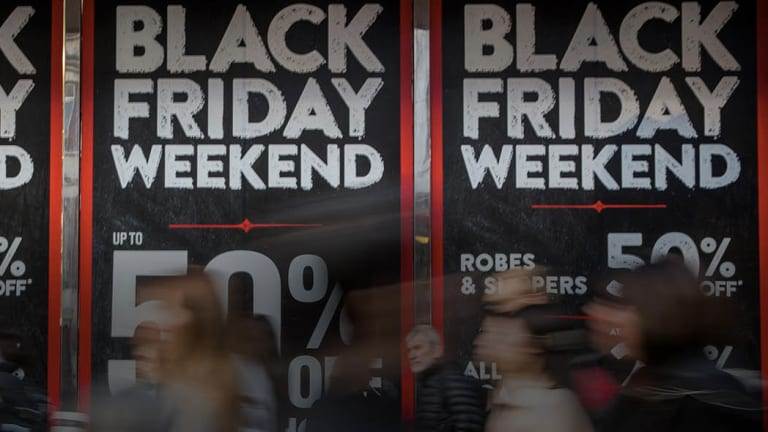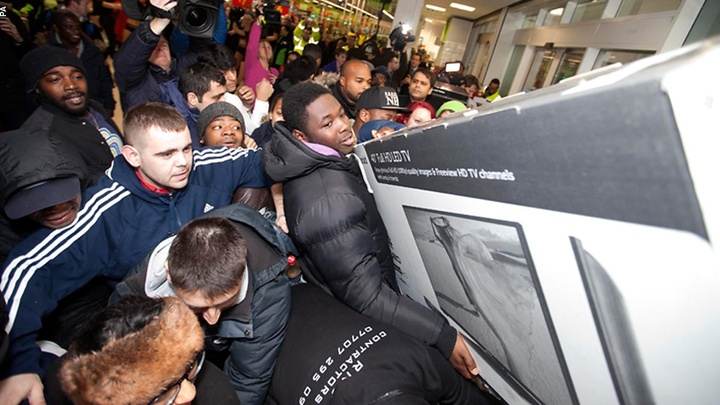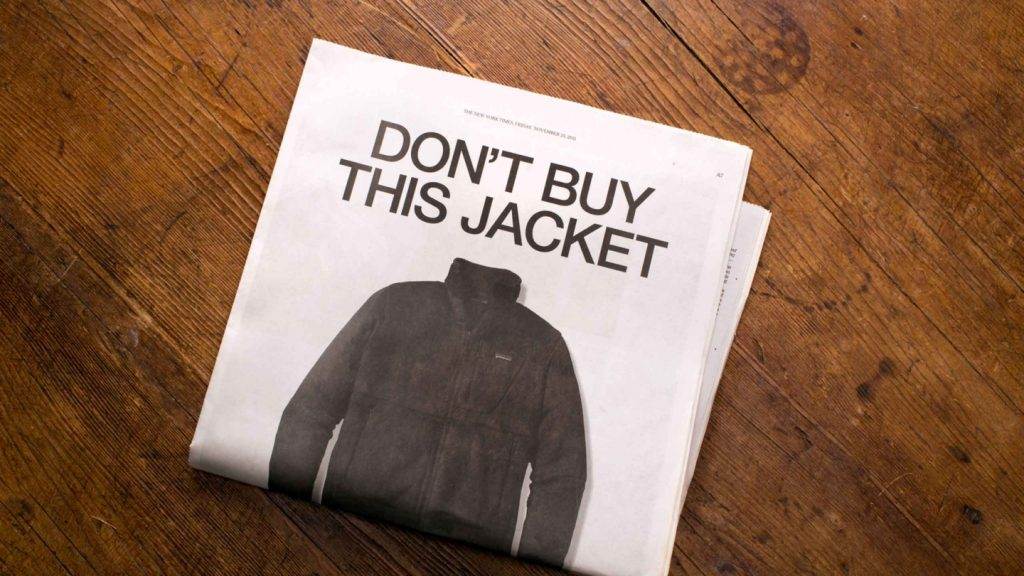The hysteric American event has been a staple of the UK retail community for years now, but how did it get here and why don’t we trample on each other’s limbs for new gadgets like our stateside counterparts?

In the US and the UK, the origin of the term ‘Black Friday’ originally related to policing. In 1950s Philadelphia, the phrase described hordes of people that erupted into the city centre following Thanksgiving. During this time, shoplifters took advantage of the crowds to such an extent that no police were able to take the day off. Eventually, retailers flipped this on its head and reclaimed the holiday – if they’re gonna nick it, reasoned the retailers, we might as well discount it, which works as a marginal deterrent and encourages sales. By the mid-80s, Black Friday was a retail celebration.
In the UK, up until the early 2010s when the updated American version of Black Friday entered our lexicon, Black Friday referred to the Friday before Christmas. In a similar vein, the UK police and NHS activated contingency plans to deal with an extra workload: the last Friday before Christmas naturally became one big UK-wide piss-up that resulted in mass scraps and stomach pumps. Such as it is to be British.
So what happened in the 2010s that cemented the US term in all our minds?
Amazon claims to be the first retailer to use the term. In 2010 they launched a Black Friday discount on their UK site, but it didn’t really take off until 2013, when Walmart-owned ASDA ran the sale throughout their physical stores, hoping to encourage the sort of behaviour we associate with American Black Friday, leading to outrageous and unchecked frenzy in pursuit of a bargain.
In the UK, however, while we love getting outrageously pissed at office parties and spewing our guts up curbside, big, semi-violent rushes into stores isn’t really our style. Granted, our football firms first introduced some of our favourite brands to the wider world via organised theft, and we did have the 2011 London riots where that guy gun-fingered the basmati rice, but on a whole, your typical shopper’s stiff upper lip is stoic in the face of mass hysteria. Couple that with the fact that while our retailers had a go – mainly because they felt pressured to have some sort of sale – in the US retailers literally discounted big fuck off TVs to $50. The stateside retailers were just as mad as the consumers.

In 2014, The Economist ran an article that eyed the Black Friday permeation of the UK retail domain with scepticism: while discounts are good for consumers, the markets are very different, and the whole ordeal was still “very much in the experimental stage.” Admittedly, the effect was a success, and Black Friday did infiltrate the UK market, it’s just that after a couple of season’s worth of wild in-store behaviour, the holiday stayed online, where retailers could safely discount coats without accidentally catalysing small-scale stampedes that may or may not result in stabbings, shootings or – very British of us – big scuffles.

While the tradition is American and has slowly worked its way to our shores, brands the world over have taken sides. M&S was an early opt outer, and Patagonia’s stance is well-known, kickstarted by the whole “Don’t Buy This Jacket” ad in The New York Times. Rampant consumerism is a plague on our society, and one that greatly increases our carbon footprint and general spiralling towards entire societal collapse via unpredictable weather patterns, sea level rise, ecosystem pollution and the like.
As Patagonia does conclude, businesses, especially ones like theirs that literally have to manufacture products to stay afloat, and ours, that have to promote retailers to make money, do well to make you consider your purchases first. Do you need X, Y and Z? If you really do, then make it the best, and look after it for as long as you can. Think about what you buy: is it multifaceted? Will it last? Is it for function or fashion?
Questions like these are absolutely necessary, and while many would argue that there can’t be any ethical consumption, some consumption is more mindful than others. So with that in mind, here are some sale pics (please don’t buy any of them).
